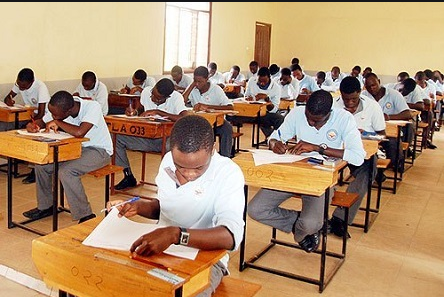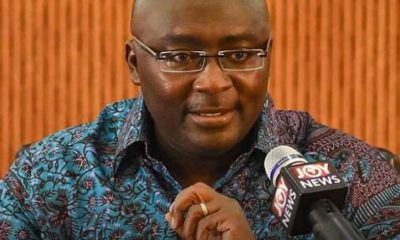Opinion
(Opinionated Stance): Here’s Why Examination May Lose Its Relevance In Ghana
Life is all about chasing what makes you happy. For many in the world now, it has become money. Even though there is no correlation between going to school and becoming wealthy, education has become the surest way through which some people like politicians, lawyers, and other elites in the society have made their money. This is why people have started taking education as a serious venture now.
Education has been defined by many as simply the attempted efforts of gaining knowledge under the auspices of well-trained personnel commonly called a teacher (or facilitator in some jurisdictions). This transfer of knowledge is undoubtedly key to the future of the learner. It is as a result of this that the transfer is done from a more knowledgeable or experienced person to one with less of the aforementioned. The essence of education is also looked at as the frantic efforts to shed light on the darkness in all spheres of this life of ours. This goes a long way to cement the fact that education is arguably an indispensable ingredient in all dealings of this current 21st century! Well, since one cannot mention education without talking about assessment, it is prudent to chip in how learners are ‘promoted’ from one class or phase of their educational endeavour to another. This is what many know as examination. So, what then is an examination at all? In education, an examination can be tipped to be a test to show the knowledge and ability of a student. A student who takes an examination is known as a candidate. The person who decides how well the student has performed is the examiner who happens to be the GES officials or NTC officials who set questions under Literacy, Numeracy, Integrated Science, Literature-in-English, Essential Skills, etc to test one’s preparedness to own a Diploma, a Degree or teacher license in Ghana. An examination may be a written test, an on-screen test, or a practical test to ascertain the level of understanding of the learner in any curriculum under review.
Undoubtedly, many students detest exams, and learners of all ages and academic ladders seem to have a dose of more and more exams that they have to take right from Kindergarten to the Lower Primary till they complete their first Bachelor’s degree. I guess examination, to many people, is for perpetuity. Some Christians even believe there is an exam after death, that is, the Judgement Day. In all these, the examination is being discredited by some schools of thought as a way of demonstrating knowledge as it is becoming easier to copy, impersonate others in exams, plagiarise or even buy exams questions over the internet or from people (apor). Succinctly, this leaves well-structured exams like the NTC as the only obvious choice, but do these NTC exams and other examinations accurately and fairly test students’ knowledge?
To my best of knowledge as someone who has written series of examinations in Ghana such as the Basic Education Certificate Examination (BECE), West African Secondary School Certificate Examination (WASSCE), and several 3-credit-hour and 2-credit-hour courses in the University, I strongly agree with the premise that examination does not actually measure a student’s knowledge and therefore should be scrapped with immediate effect. I strongly posit the above stance because of the following obvious factors.
To set the ball rolling, most Ghanaian students cheat in examinations. Cheating in examination has been normalized in such a way that some unscrupulous persons in the teaching fraternity shamelessly aid their learners to copy verbatim from textbooks unto their BECE or WASSCE answer booklets. In fact, the disgusting issue herein is that, the security personnel who are tasked to disallow such criminal acts also take in some few coins and pitifully assist in this senseless adventure. What level of the student’s knowledge is measured if he or she is being spoonfed with the answers to examination questions from A to Z? The other side of the coin is that those who are not ‘privileged’ enough to have a corrupt external invigilator to assist in this madness of cheating during exams may live as failures after the exams. Since we have centered everything on exams in Africa (the success in life), those who fail in exams are seen as outcasts in their own family, the community, and even the nation at large.
Furthermore, some examination results depend on the personal opinion of the examiners. Why do I say so? Whilst some subjects such as Mathematics or Integrated Science may not have so many of an issue here, a different subject like the English Language has a lot of issues here. With some portions of the English Language (Literacy Skills) such as the Essay part strictly dependent on the personal opinion(s) of the examiner to award marks, it does not necessarily test the knowledge level of the student. For instance, out of the 30 marks mostly assigned to composition parts in the English Language, there is no definite formality to award this mark since the tradition — Expression, Organization, Content and Mechanical Accuracy outlines all depend on the examiner’s discretion. In short, a moody examiner may award fewer marks to a candidate in composition whilst an overjoyed examiner may give more marks to an undeserving candidate. So, again I ask; does examination really measure the knowledge level of candidates? Absolutely not!
Also, examinations do not actually show whether student A, B, or C has acquired certain knowledge or otherwise. This is because many circumstances come together to contribute to one’s success or failure in any examination. With many people sticking to rote learning, examinations may not favor another caliber of students. Rote learning is a memorization technique based on repetition. The idea is that one will be able to quickly recall the meaning of the things studied in an aftermath encounter. This is what Ghanaians have termed as “Chew and Pour”, and with others even adding “Pass and Forget”. This phenomenon means that one who is preparing for exams studies the content letter to letter without necessarily understanding what it means, just so they can get the pass mark and move on to the next level. With this in place, students who are not good in rote learning but are equally better in creativity, logical reasoning, and critical thinking skills may fail to acquire pass marks in examinations and they will be branded as failed or bad students. What criterion was used to brand the later described students as failures or the earlier described learners as victors in the exams? This is one of the reasons why I wholeheartedly side with the analogy that examination must be canceled or properly conducted because it has never really measured the actual intelligence of anyone since time immemorial.
Lastly, the criterion for setting examination questions whether under assessment for learning or assessment as learning could be subjected to proper scrutiny in this country or even countries all over the world. The idea of treating say 6 whole topics with 400 pages of content and just setting 5 questions as examination, which cannot cover the entire topics taught by the lecturer or learned by the learner, is just a hectic experience for the latter. Why should one be put through such a headache; especially in a country where one sits home for a decade and more with no job after passing through this harsh educational system? After setting questions to cover 2 or 3 topics out of say 8 topics whilst the students were required to study everything, what do we gain? Is it, peradventure, a way to slam so much stress on the student because the lecturer went through the same whilst in school? Or is it really a laid down procedure to distribute stress, disappointment, and negative energy to all and sundry? This and many other pressures packaged on students because of examination are reasons why many detest the phenomena. What if one becomes sick on the day of the exams after having sleepless nights to study all these chapters just to have a handful in exams and he, therefore, fails the exams? Does it mean such a person is a bad student? Not at all!
From the above arguments, it is clear that those experts who have purportedly decided to take a staunch stance towards the cancellation of examination as a medium of testing one’s knowledge really have a good case and this is why some people fully support this position of theirs.
C. A. Asante is a teacher (Village Teacher) by profession who has reported on a number of elections in Ghana for Central Press Newspaper. He is known among his peers as a researcher and regular contributor in Education, Politics, etc. Follow : Instagram- @ chris_asante1...Facebook: CA Asante

















